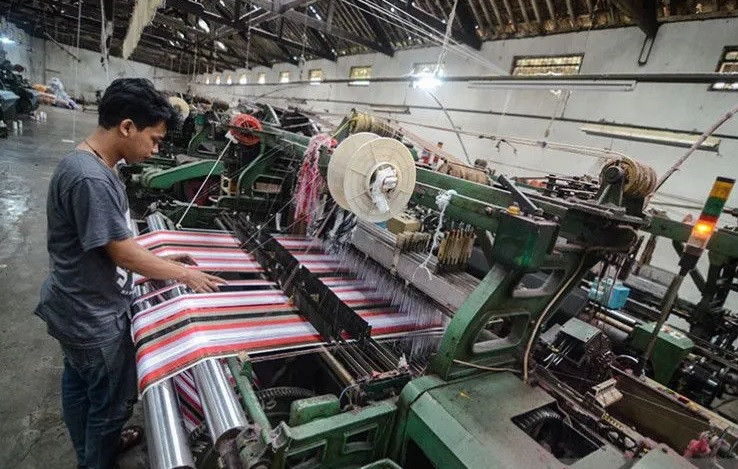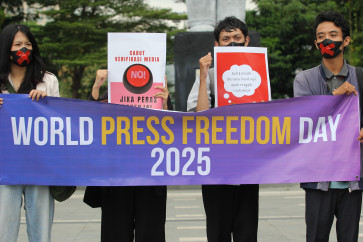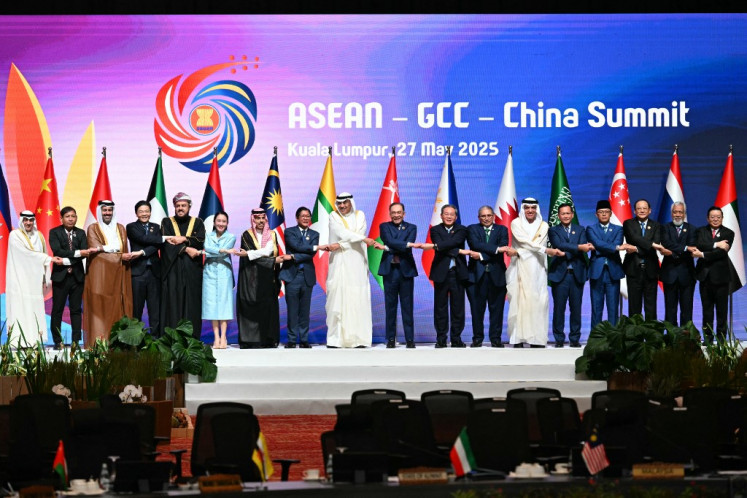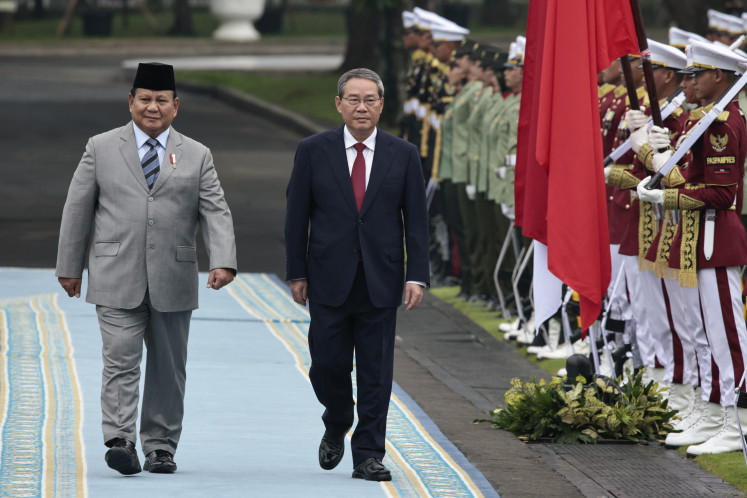Domestic demand keeps RI factories humming as regional peers falter
The PMI report published by S&P Global on Monday shows that the index jumped by 2.2 points to 52.5 in June from 50.3 in May.
Change text size
Gift Premium Articles
to Anyone

I
ndonesia’s manufacturing purchasing managers’ index (PMI) rose again last month on the back of strong domestic demand, even while activity slumped in other countries in the region amid weak global demand.
The PMI report published by S&P Global on Monday shows that the index jumped by 2.2 points to 52.5 in June from 50.3 in May.
The report is based on a survey of purchasing executives from around 400 manufacturing companies across Indonesia to determine business conditions.
"Growth momentum across Indonesia's manufacturing sector re-accelerated in June, according to the latest S&P Global PMI data,” wrote S&P Global economics associate director Jingyi Pan in a press statement released on Monday.
The latest figure marks a rebound from May, when the country’s PMI almost slipped below the 50-point threshold that separates expansion from contraction. The index has remained in the expansion territory for 22 months in a row.
“The pace at which overall demand increased was solid overall, though the lack of external orders continued to dampen total sales growth,” Pan said.
The statement noted that the improved conditions were owed to an increase in demand, which led to faster production growth and a rise in backlogs.
Higher volumes of new orders and output put pressure on supply chains, which in some cases can result in cost inflation. However, S&P said overall cost inflation in Indonesia’s manufacturing sector did not worsen, as input cost inflation “moderated further” and factory gate prices receded for the first time in 32 months.
“This reinforces Bank Indonesia's [BI] view that the monetary policy tightening cycle is now over, with weakening inflationary pressure across the goods producing sector,” read Pan’s statement.
Late last month, BI kept its benchmark seven-day reverse repo rate at 5.75 percent, the level it has been at since January following consecutive increases in a monetary policy tightening cycle that began in August last year.
Experts believe BI will stick with that rate at least until the end of 2023 even as inflation data published by Statistics Indonesia (BPS) on Monday revealed that annual consumer price index (CPI) growth declined to 3.52 percent in June.
Read also: Inflation slows more than expected but don’t hold your breath for BI rate cut
The reading marked a further decline from May, when the inflation rate dropped to exactly 4 percent, which marks the upper end of BI’s inflation target range of 2 to 4 percent.
PMI slumps in major Asian economies
S&P Global survey results published earlier on Monday showed that manufacturing activity in Japan and South Korea contracted due to sluggish demand from China and as exporters in those countries were bracing for the fallout from aggressive interest rates hikes in the US and Europe.
Japan’s au Jibun Bank PMI fell back into contraction territory at 49.8 points in June after it had expanded in May.
South Korea's PMI fell to 47.8 in June from 48.4 in May, extending its downturn to a record 12th consecutive month on weak demand in Asia and Europe.
Factory activity also contracted in Taiwan, Vietnam and Malaysia, PMI surveys showed.
Read also: Asia's factory output slumps as weak China demand weighs
Bank Danamon economist Irman Faiz said the main driver behind Indonesia’s comparatively strong PMI performance was rising domestic demand, which offset the effect of diminishing external demand.
“Indonesia did not experience a contraction because our main market is domestic. Therefore, amid today’s eroding global demand, domestic demand can sustain our manufacturing performance,” Irman told The Jakarta Post on Monday.
He warned, however, that global demand would continue to slow down, making domestic demand all the more important. Irman pointed out that consumption incentives and safeguarding the supply of staple goods could help sustain household spending.
The government’s success in bringing down inflation had helped push up consumer purchasing power and thus maintain domestic demand, said Josua Pardede, chief economist at publicly listed Bank Permata.
“We think that Indonesia’s economy tends to be much better at facing external pressure, given that [it is] mainly buoyed by domestic consumption and investment,” Josua told the Post on Monday.
To maintain this momentum, Josua added, the country could seek to keep input costs at bay and reduce lead times.
S&P Global found that lead times in Indonesia had marginally lengthened for four months in a row, which had contributed to the backlog buildup in June.









